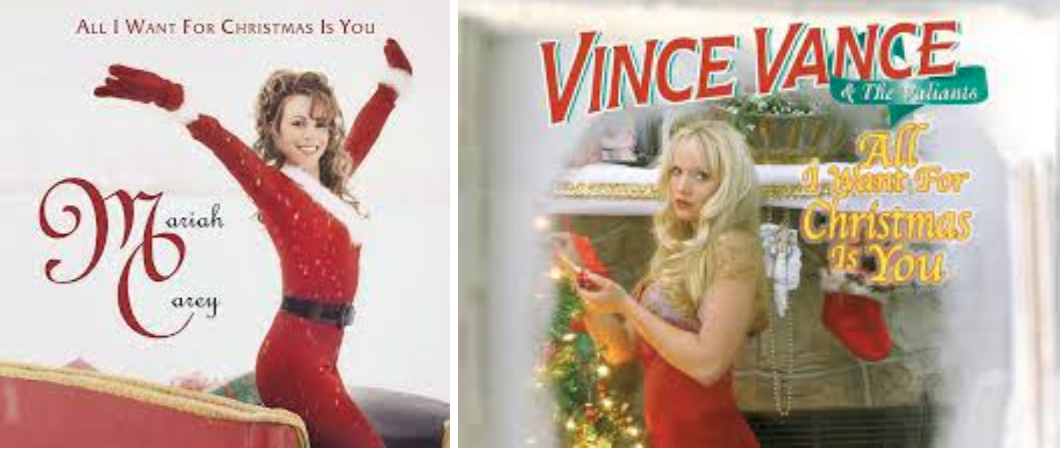The Basics of Copyright Law Surrounding the Latest Mariah Carey Lawsuit
Whether you like it or not, the holidays are around the corner. Which means Mariah Carey’s 1994 song, All I Want For Christmas Is You will be on in every store, radio station, and commercial for the next two months. However, this holiday season Mariah Carey has been hit with a lawsuit regarding this song, due to its similarity to Vince Vance and the Valiants 1989 song, All I Want For Christmas Is You. So let's take a look into the basics of music copyright law so that you can draw your own conclusions on this case.
Within U.S Copyright law there are two types of protected musical works: the composition, and the sound recording. The composition, also known as the Performing Arts (PA) copyright, consists of the structure, notes, lyrics, and chords of the song, represented by the sheet music. The recording, formally known as the Sound Recording (SR) copyright, consists of the sounds on a fixed medium like a CD or digital file. There can only be one PA copyright, but there can be multiple SR copyrights. This is because people can create derivative works based on the original PA copyright, so long as you have the permission of the copyright owner. A derivative work is any new work that is created from an already existing work. An example of this would be Ice Cube’s song It Was a Good Day, which samples The Isley Brothers song Footsteps in the Dark, Pts. 1 & 2.
Mariah Carey - All I Want for Christmas Is You (Make My Wish Come True Edition)
Vince Vance & The Valiants - All I Want for Christmas Is You
Inorder to protect these works, U.S Copyright law grants several exclusive rights and protections to copyright owners. First, they have the right to reproduce the copyrighted work. This would be done via physical or digital distribution methods like Spotify, ITunes or even record stores. Second, they have the right to prepare derivative works based upon the copyrighted work. As mentioned earlier, this allows others to create new works based on the original work with the permission of the copyright owner. Third, they have the right to distribute copies to the public. No one other than the copyright owner can decide who can sell their work, and it is typically licensed out to retailers. Fourth, they have the right to perform the work publicly, or let someone else perform it. Fifth, they have the right to display the work, which is more for physical works of art. Finally, they have the right to perform a sound recording publicly. This is different from the fourth exclusive right, as it only pertains to sound recordings, and is more limited. For example, a song playing over a loudspeaker at a mall.
Inorder to register a copyright, the original creator must have it fixed in a tangible form, and registered with the U.S Copyright Office. Only after these steps are completed is the work protected under U.S Copyright Law. A tangible form could be anything from a CD to a digital file on a USB. Also, in a copyright lawsuit, the person suing has to prove beyond reasonable doubt that the defendant had access to the song before the creation of their own song. There is much more to copyright law, such as synchronization licenses for movies, and performing rights organizations. However, this information leaves you informed on the basics of copyright law.
According to NBC News, Vince Vance and the Valiants claim that Mariah Carey copied the compositional structure of their song, and that their song got national radio attention before the creation of Mariah Carey's song. This would prove that Mariah Carey had access to the Vince Vance and the Valiants song while creating her song. They also claim that Mariah Carey copied their “unique linguistic structure” as her song had “greater than a 50% percent [similarity] of the original work.” So after listening to the songs, what do you think? Obviously the Mariah Carey song is much more popular, but try to be as objective as possible, and draw your own conclusions.
https://www.copyright.gov/circs/circ14.pdf
https://www.copyright.gov/engage/musicians/
https://www.govinfo.gov/content/pkg/USCODE-2011-title17/html/USCODE-2011-title17.htm



